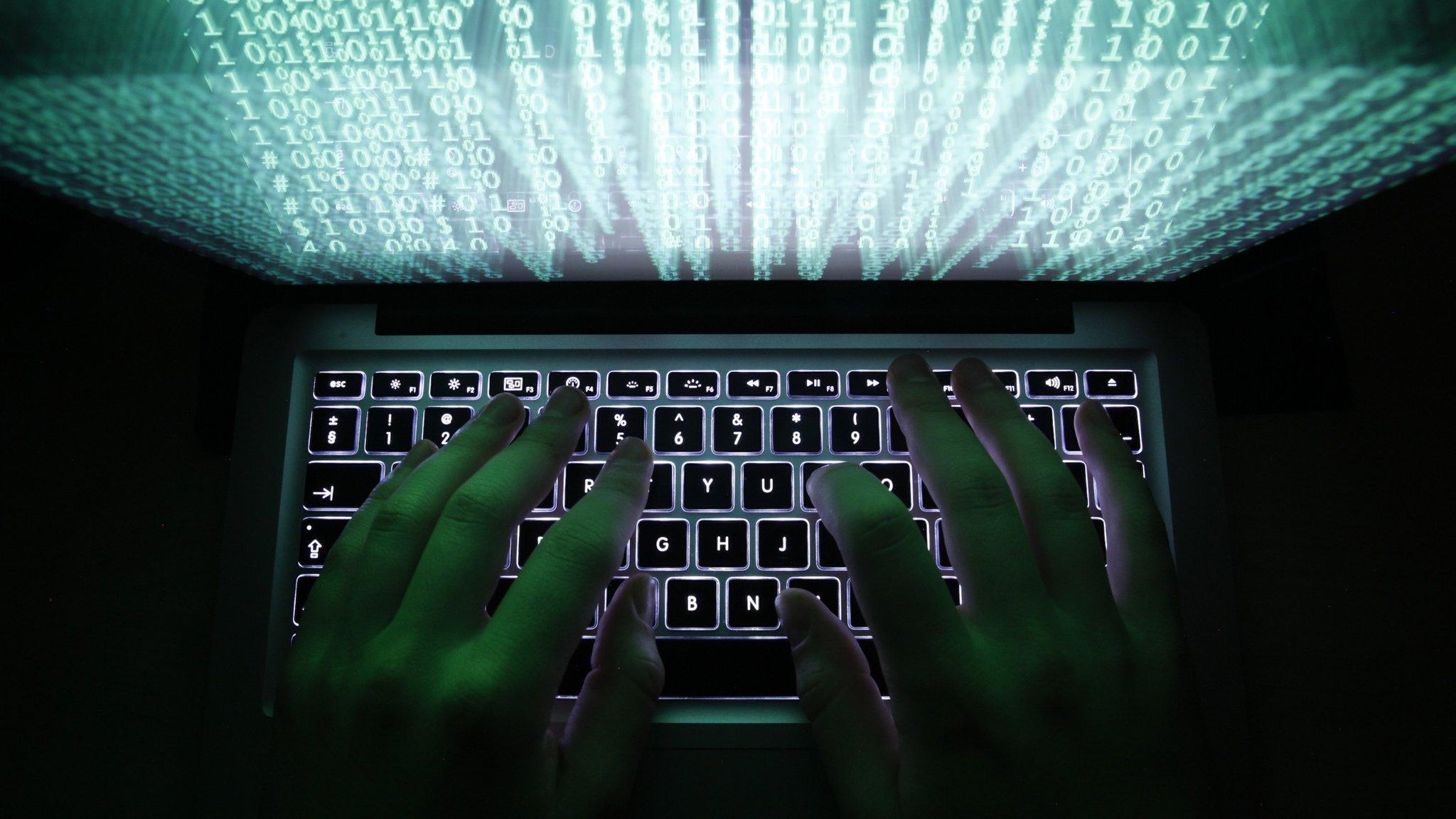Cameron discusses risk of Paris-style attack in UK
- Published
- comments
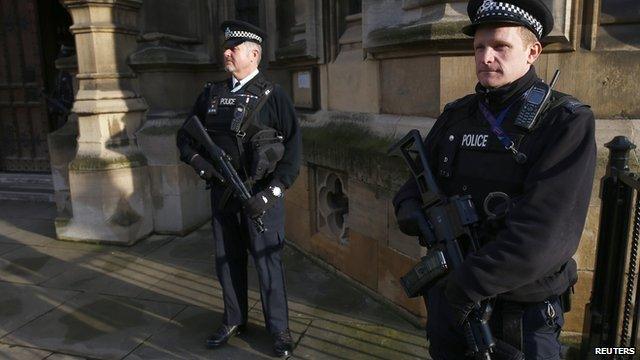
There are fears that Britain could be the victim of an extremist attack like that seen in France
Prime Minister David Cameron and security chiefs have reviewed the risk of a Paris-style attack in the UK.
They agreed that elements of the Paris attacks should be considered when planning future training exercises for the police and security services.
There will also be heightened security to ensure activists cannot bring weapons into the UK.
The UK terror threat level remains unchanged at "severe", meaning an attack is highly likely.
Mr Cameron has also vowed to give the security services more powers to monitor online and telephone conversations between terror suspects.
David Cameron: "We must not allow terrorists safe space to communicate with each other"
Plans for a communications data bill - branded a "snooper's charter" by critics - were blocked by the Liberal Democrats, but Conservatives have signalled they will revive the legislation if they secure an overall majority in May's general election.
Speaking at an event in Nottingham, Mr Cameron said: "The first duty of any government is to keep our country and our people safe.
"If I am prime minister, I will make sure we do not allow terrorists safe space to communicate with each other."
Labour's shadow home secretary, Yvette Cooper, said security services did require powers to get information to stop extremist acts, but said "strong powers need to be backed by strong checks and balances".
BBC assistant political correspondent Norman Smith said the security agencies often rehearse terror scenarios and they tend to be focused on large transport hubs and major public events.
"Perhaps they may now focus on this new style of attack, on very specific sites," he said.
Last week, security was increased at UK ports, border controls and at London's St Pancras station, with "intensified checks on passengers, vehicles and goods coming from France".

Analysis
By BBC security correspondent, Frank Gardner
Ever since the deadly Mumbai attacks of 2008, UK security chiefs have been looking long and hard at how Britain should prepare for such a scenario here.
Today's meeting in 10 Downing Street was designed to make sure nothing has been missed.
The chief worry was - and remains - how to close the gap between a heavily armed gunman opening fire in a crowded place and the moment that an adequate response force can arrive on the scene.
To this end, Scotland Yard's Counter Terrorism Command (SO15) has spent the last six years rehearsing various scenarios around the country, working closely with special forces and even Home Office lawyers.
These exercises are set to continue and even be stepped up, incorporating lessons learned from the Paris attacks.
Experts at Monday's meeting have now gone away to consider what revisions need to be put in place and what more resources are needed to counter the growing terrorist threat.

A No 10 spokesman said the prime minister asked the police and military to continue to work closely together to ensure the police can call on appropriate military assistance when required across the country.
The meeting also discussed the need for cordons to be set up quickly around the site of a terror attack to ensure suspects cannot flee the area.
"They also discussed the risk posed by firearms, agreeing that our existing tough firearms laws are a very important part of the protections we have and that we should step up our efforts with other countries to crack down on the illegal smuggling of weapons across borders," the Downing Street spokesman said.
After joining French President Francois Hollande and more than one million people for a unity rally in Paris on Sunday, Mr Cameron said the UK was facing the same threat from the "fanatical death cult of Islamist extremist violence".
Tackling extremists would mean working "very closely" with the Muslim community, the No 10 spokesman added, saying it was an important part of the government's counter-terrorism, Prevent, strategy.
"That does not detract from the point that extremist Islam is a distortion of the Muslim faith. It is a community whose religion is being warped," the spokesman said.
On Sunday, Culture Secretary Sajid Javid said Muslim communities faced a special burden to help to track down Islamist extremists, saying it was "no good" for people to deny that the Paris attackers were Muslims.
Last week's attacks in France - on the offices of satirical magazine Charlie Hebdo, police officers and a kosher supermarket - killed a total of 17 people.
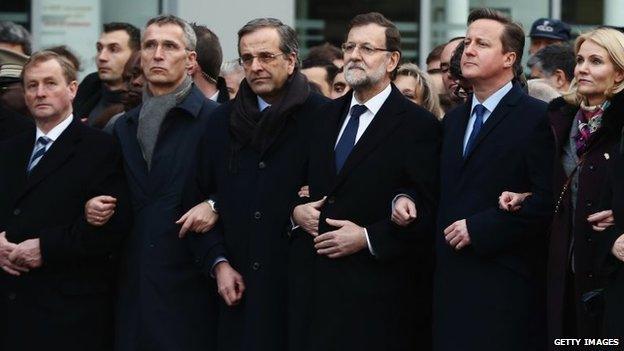
Prime Minister David Cameron was one of about 40 world leaders to join the unity rally in Paris
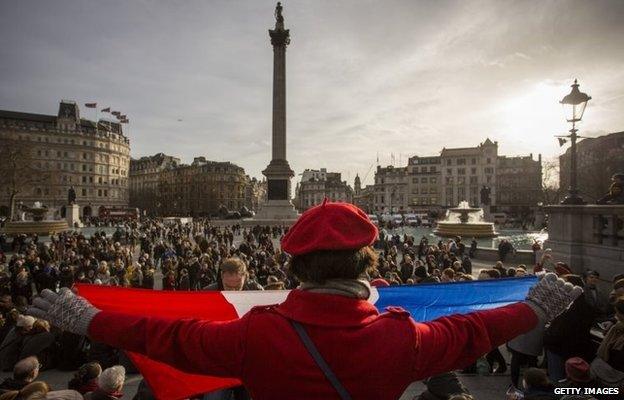
People gathered in London's Trafalgar Square to pay tribute to the victims of France's terror attacks
Meanwhile, Parliament's Joint Committee on Human Rights has raised some concerns about the government's counter-terrorism bill - due for its second reading in the House of Lords on Tuesday.
It contains plans to block UK terror suspects returning to Britain and to impose a statutory obligation on universities to prevent people being drawn into terrorism.
The human rights committee - made up of MPs and peers - said blocking the return of terror suspects from countries such as Syria would violate the human rights of British nationals, even if it were enforced on a temporary basis.
Including universities in a list of institutions required to crack down on extremism had "implications for both freedom of expression and academic freedom", the committee added.
Immigration and Security Minister James Brokenshire said the government would "carefully consider" the report.
- Published8 January 2015
- Published9 January 2015
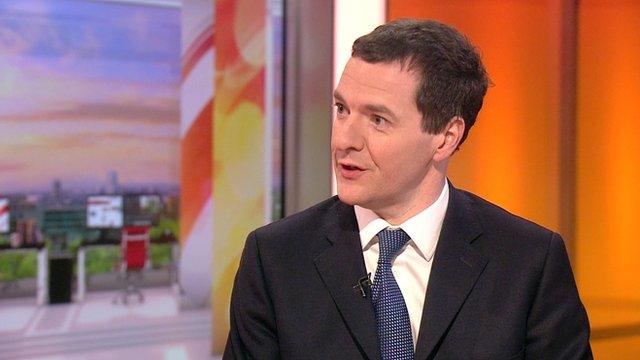
- Published24 November 2014
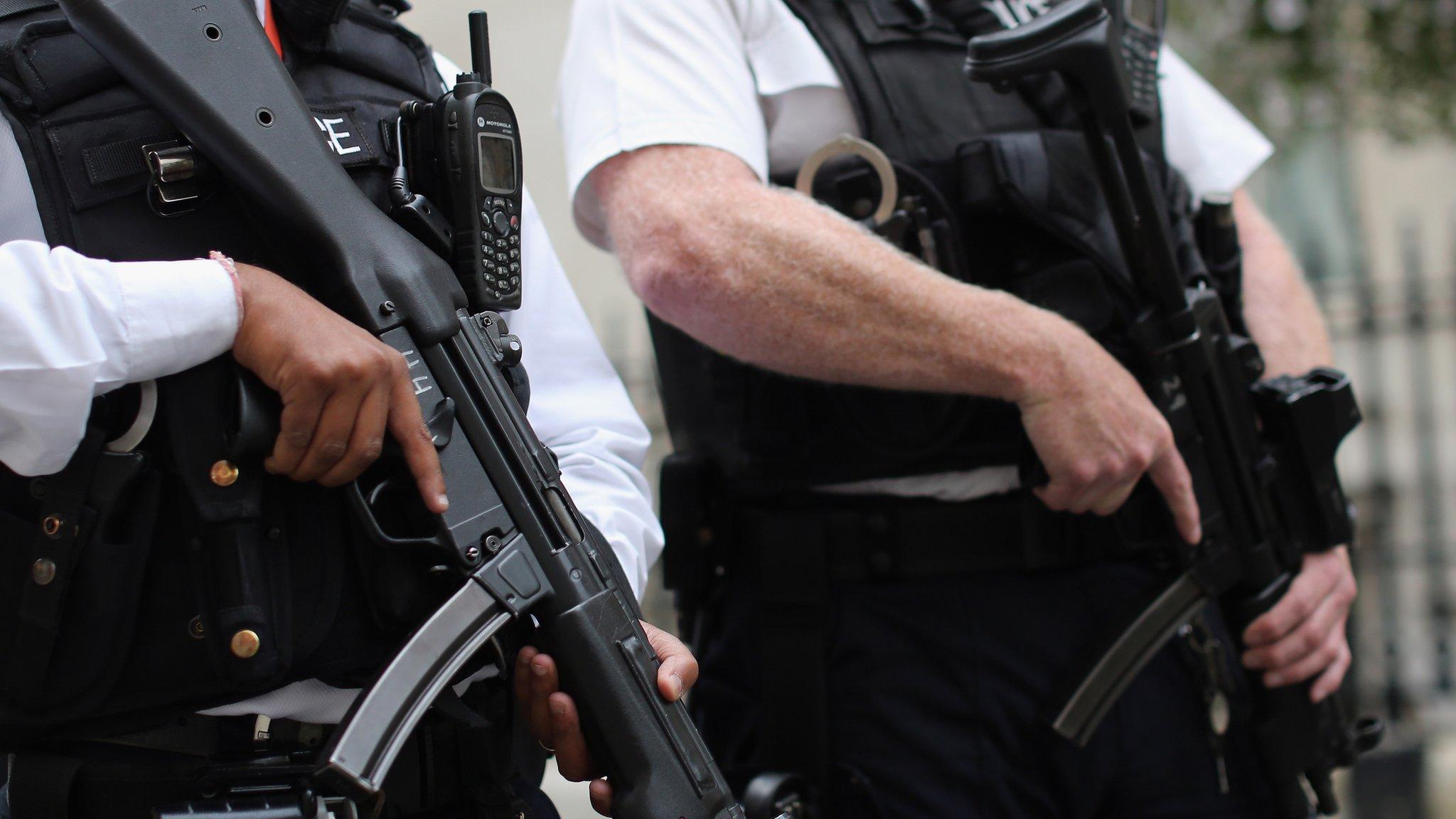
- Published23 November 2014
